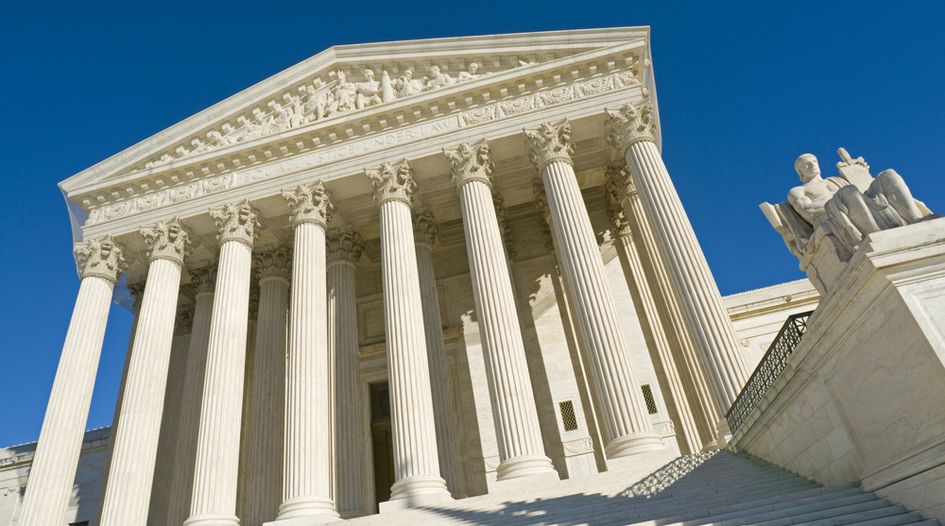TRUMP TOO SMALL heads to Supreme Court for free speech review

The Supreme Court has agreed to review the USPTO’s challenge to a February 2022 ruling by the US Court of Appeals for the Federal Circuit in Vidal v Ester (22-704; USC; 5 June 2023).
In the ruling at issue, the Federal Circuit held that applying Section 2(c) of the Lanham Act – which bars registration of a trademark that consists of or comprises a particular living individual’s name without their written consent – may unconstitutionally restrict free speech in violation of the First Amendment.
Federal Circuit disagrees with USPTO and TTAB refusals
In 2018 Steve Elster applied to register the mark TRUMP TOO SMALL for use on t-shirts, referencing a 2016 Republican presidential primary debate exchange between then-candidate Donald Trump and Florida Senator Marco Rubio.
The USPTO examining attorney and, subsequently, the TTAB refused to register the mark on the grounds that it violated Section 2(c) of the Lanham Act by clearly referring to former President Trump without his written consent.
On Elster’s appeal, the Federal Circuit ruled that the TTAB’s refusal to register the trademark TRUMP TOO SMALL for use on t-shirts involved content-based discrimination and was unjustified by a compelling or substantial government interest.
Case heads to Supreme Court
Following USPTO Director Vidal’s January 2023 petition for a writ of certiorari, the Supreme Court granted cert on whether the refusal to register a trademark under Section 1052(c) of Chapter of the US Code violates the First Amendment’s free speech clause when the mark contains criticism of a government official or public figure.
In its judgment, the Supreme Court will consider whether the First Amendment allows content-based but viewpoint-neutral restrictions on which trademarks may be registered – provided welcome clarity to this contentious area. It will also review the USPTO’s restriction of marks that consist of or comprise a name identifying a particular living individual except with their written consent.
This is an Insight article, written by a selected partner as part of WTR's co-published content. Read more on Insight
Copyright © Law Business ResearchCompany Number: 03281866 VAT: GB 160 7529 10

